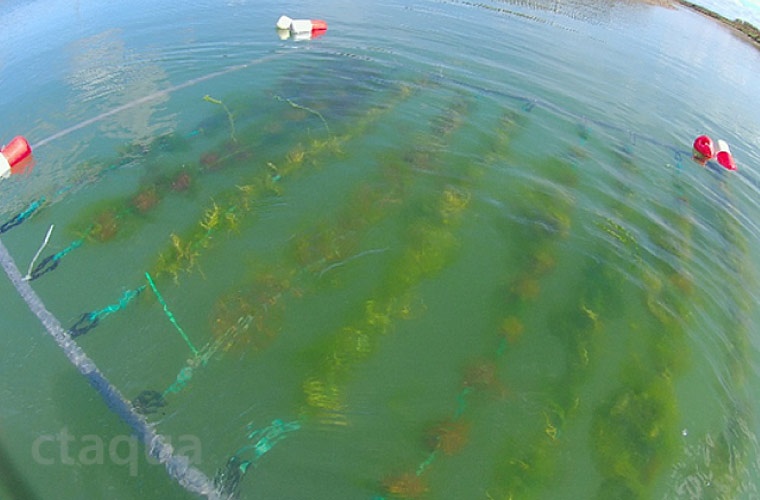 Algae farming by CTAQUA | Access2Sea
Algae farming by CTAQUA | Access2Sea
The European Commission has published a new study highlighting both opportunities and barriers facing the algae sector in Europe, setting out key actions to unlock its potential. The study, authored by a consortium of organizations including Trinomics, sPro, and Ghent University, was prepared for the European Climate, Infrastructure and Environment Executive Agency (CINEA).
The study underlines that although algae production is still a niche sector in Europe—valued at around €100 million in 2022—it holds considerable promise for food, feed, pharmaceuticals, cosmetics, and bio-based materials. The report highlights the sector's potential to create up to 15,000 jobs by 2030, with a more cautious estimate of 5,000 to 10,000. It also notes the environmental benefits of algae, with one tonne of dry algae having the capacity to sequester up to two tonnes of carbon dioxide.
According to the study, the main obstacles to the growth of the industry include limited awareness of algae products among consumers and investors, high production costs driven by the high cost of energy and capital expenditure, complex and fragmented regulatory frameworks, and difficulties in accessing finance.
The report also points to the scarcity of specialised skills and knowledge across the value chain as a bottleneck. It notes the need for expertise in various fields, from biology and engineering to business development and policy.
To address these barriers, the authors recommend action such as developing a clearer and more supportive EU policy framework; facilitating access to finance and investment; supporting research, innovation, and technology transfer; promoting market development and consumer awareness; and encouraging collaboration across Member States to build a stronger value chain. The report specifically recommends that existing policy instruments, such as the Common Agricultural Policy (CAP) and the Common Fisheries Policy (CFP), should explicitly support the development of the algae sector.
The report states: “A comprehensive EU policy framework for algae is missing, which hampers the development of the sector.” It also calls for measures to streamline authorization processes for new products and to harmonise standards.
The study notes that global demand for algae-based products is increasing rapidly. Europe has the capacity to become a significant player in this market if the right support measures are put in place. It estimates that the sector could create thousands of jobs in coastal and rural areas, contributing to the EU’s blue economy and the European Green Deal objectives.
The authors stress that “coordinated actions at EU and national levels are needed to overcome existing barriers.”


